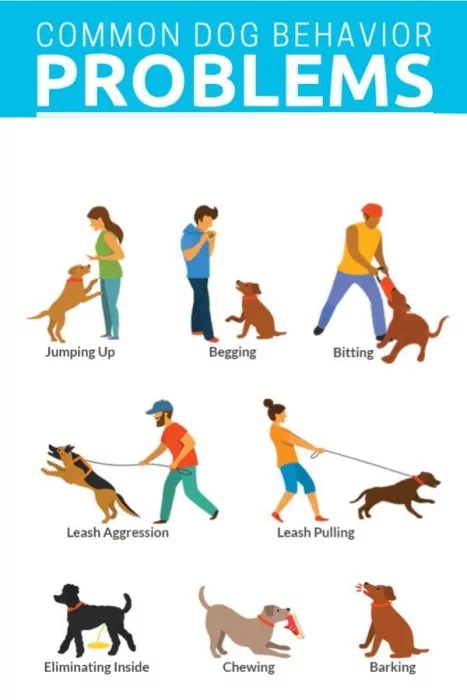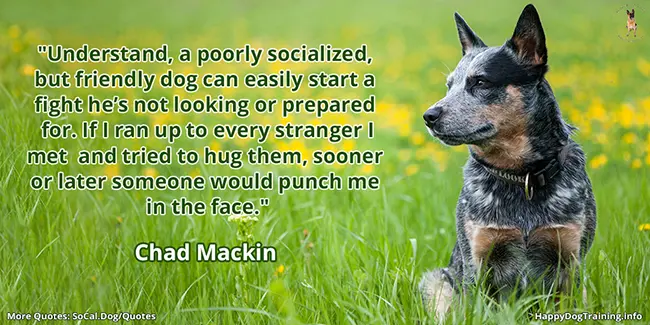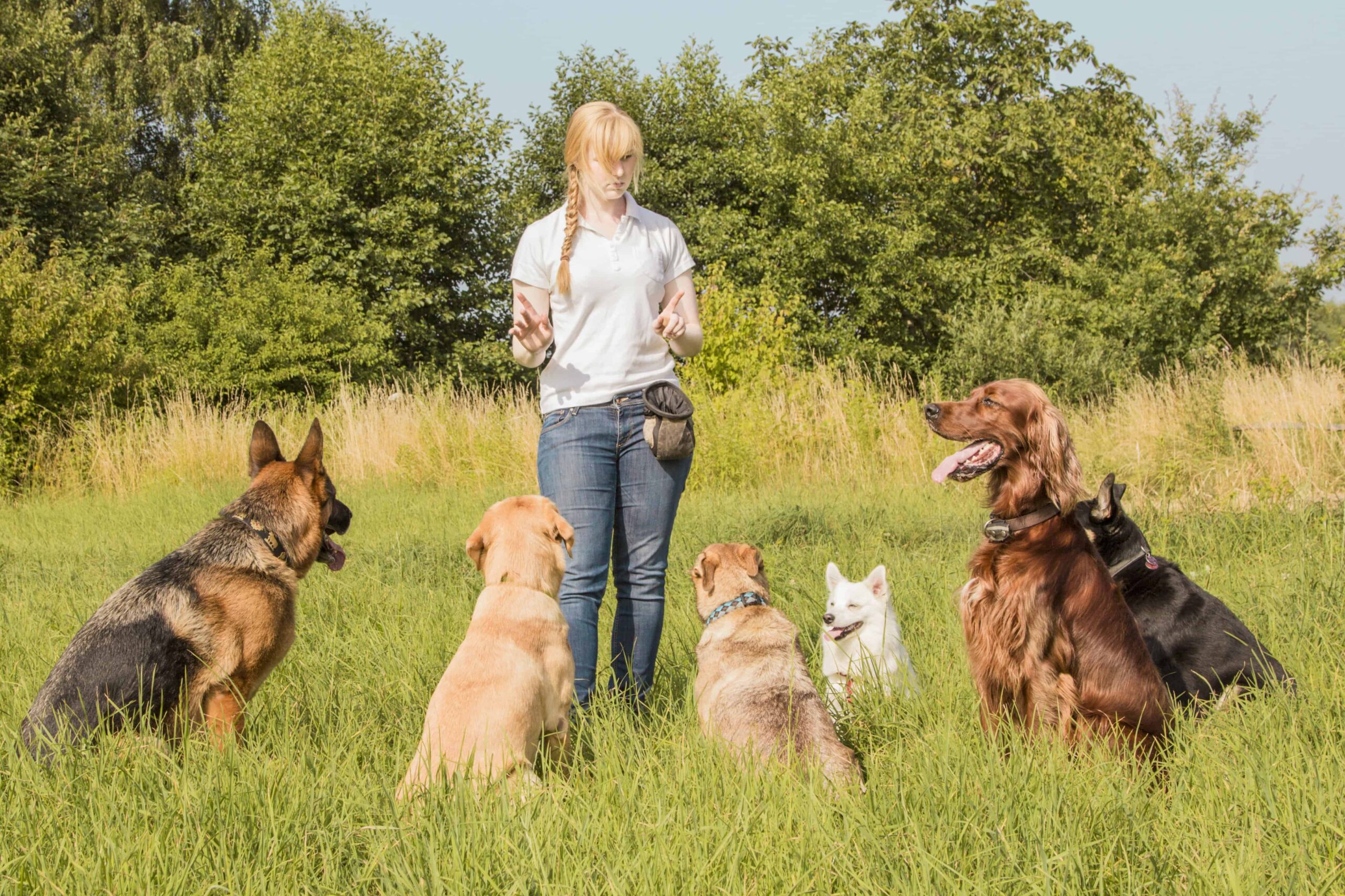Unlock Your Pet's Potential: Proven Canine Training Methods for Success
Reliable dog training is a nuanced process that hinges on comprehending canine habits and utilizing medically backed approaches. dog training charlotte. By including positive reinforcement, establishing clear commands, and prioritizing socialization, pet dog proprietors can grow a productive connection with their animals. Difficulties typically develop that need tailored services and a client approach. Exploring these verified techniques exposes not only the potential for behavior renovation yet likewise the deeper bond that can be created in between owner and canine. What vital techniques must be thought about to really unlock your pet's capacity?
Understanding Pet Habits
Understanding pet dog habits is important for effective training and promoting a positive connection between pet dogs and their owners. A thorough understanding of canine body language, articulations, and social communications is vital for recognizing their emotions and requirements. Dogs connect largely through non-verbal signs; as an example, a wagging tail might indicate enjoyment, while pinned ears can signify worry or entry.

Moreover, environmental elements play a considerable role fit a dog's habits. Modifications in routine, new environments, or the existence of unknown people can cause stress and anxiety or anxiousness in pets. Acknowledging these triggers allows owners to mitigate adverse responses and create ideal training approaches.
Eventually, a deep understanding of pet behavior lays the structure for successful training methods, improving both actions and the general bond between the dog and its proprietor. dog training near me. This understanding is important for promoting a well-adjusted, happy canine friend
Favorable Reinforcement Strategies
Efficient training relies greatly on favorable reinforcement techniques, which have actually been shown to yield substantial cause shaping wanted habits in pet dogs. This technique includes rewarding a pet for displaying specific actions, consequently enhancing the likelihood that these actions will certainly be repeated. Incentives can take numerous kinds, consisting of deals with, appreciation, toys, or play, depending upon what motivates the private dog.

It is important to slowly phase out rewards as the dog finds out the actions, transitioning to periodic reinforcement. This strategy keeps the habits gradually while avoiding dependency on consistent incentives. By concentrating on positive reinforcement, trainers can grow a trusting relationship with their pets, promoting a healthy and participating training setting that improves general obedience and efficiency.
Developing Consistent Commands
A fundamental element of successful pet training is the establishment of consistent commands. Consistency in commands is crucial for reliable interaction between the pet dog and the trainer. When commands are consistent, dogs find out to associate particular words with preferred habits, which speeds up the training procedure and improves understanding.
To develop constant commands, it is vital that all relative use the exact same terms and gestures. For instance, if one site individual utilizes "rest" while another states "take a seat," it can produce complication for the canine. Select clear, distinctive words for commands and guarantee every person involved in the canine's training sticks to these choices.
Enhance commands through regular method, making certain that the pet obtains ample opportunities to react appropriately. When a pet effectively complies with a command, instant positive reinforcement should follow.
Lastly, hold your horses. Establishing consistent commands takes time and effort. With commitment and clearness, you will assist your canine develop a strong understanding of assumptions, inevitably bring about a mannerly buddy.
Socialization and Direct Exposure
Mingling a pet dog is crucial for cultivating a well-adjusted and certain companion. This procedure entails subjecting your canine to a variety of atmospheres, people, and various other animals to develop their social abilities and versatility. Early socialization, preferably in between the ages of three to fourteen weeks, is crucial, as it prepares for a have a peek at these guys canine's future behavior.
Throughout socialization, aim to give favorable experiences in different setups, such as parks, hectic streets, and homes with various other animals. Introduce your canine to numerous stimuli, including sounds, views, and smells, ensuring that each experience is satisfying. This exposure helps minimize fear and anxiousness, leading the way for an extra resilient pet dog.
Involving in regulated group play sessions with other canines can additionally boost social skills, instructing your family pet suitable communications and borders. Focusing on socialization will considerably contribute to your pet dog's total joy and behavior throughout their life.
Overcoming Common Training Challenges

Another constant issue is disturbance. Canines might have a hard time to concentrate in hectic or strange settings. Progressively desensitize your pet dog to interruptions by beginning training in a quiet setting and slowly presenting even more stimulations as they end up being skilled (Dog training). Favorable support methods, such as deals with and praise, can preserve inspiration and focus.
Additionally, behavioral problems like leaping or too much barking can become aggravating. Address these by showing different behaviors, such as sitting comfortably when welcoming visitors. Uniformity and perseverance are vital; enhance preferred behaviors regularly and avoid abuse, which can cause confusion.
Lastly, identify that each canine is one-of-a-kind, and training timelines may vary. Tailor your technique to your pet dog's specific demands, and look for specialist advice if essential. With willpower and the right strategies, getting rid of these difficulties can cause a trained, delighted canine buddy.
Final Thought
Finally, unlocking a canine's potential necessitates a comprehensive approach that incorporates an understanding of canine actions, the application of positive reinforcement techniques, and the facility of regular commands. Early socializing and exposure to diverse settings better boost a pet dog's versatility and confidence. By addressing usual training obstacles with tailored techniques and patience, a unified and participating connection between dog and trainer can be promoted, ultimately causing a mannerly buddy efficient in prospering in different situations.
Reliable pet dog training is a nuanced process that pivots on comprehending canine behavior and using clinically backed strategies.Recognizing canine actions is crucial for efficient training and fostering a favorable relationship in between pet dogs and their owners.Reliable training relies greatly on positive support techniques, which have actually been shown to produce significant results in forming preferred actions in canines. When commands are consistent, canines find out to associate certain words with desired actions, which accelerates the training process and enhances understanding.
In final thought, opening a canine's possible requires a thorough method that includes an understanding of canine behavior, the application of positive support techniques, and the establishment of regular commands.